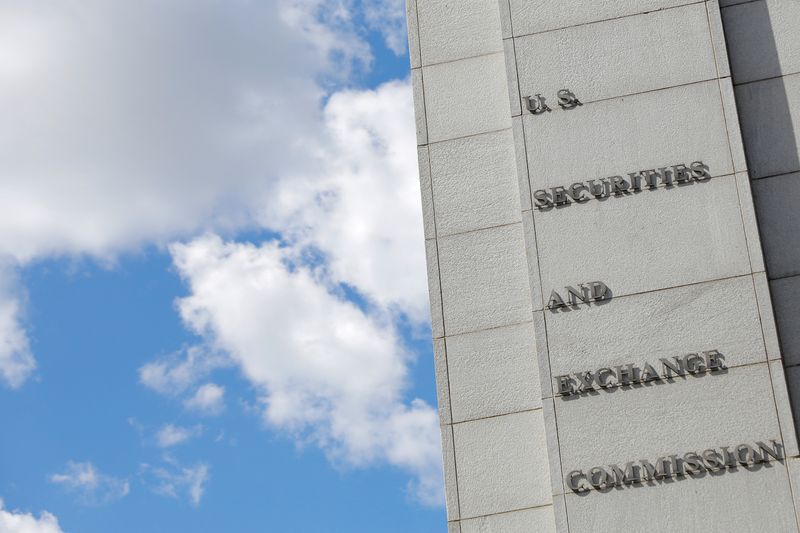By Michelle Price
WASHINGTON (Reuters) - The U.S. Securities and Exchange Commission (SEC) on Wednesday finalized long-awaited regulations to improve the resilience and transparency of the roughly $5.5 trillion U.S. money market fund industry.
A critical source of short-term corporate and municipal funding, money market funds have been bailed out by the U.S. government twice in 15 years and are badly in need of reform, say industry critics.
WHAT ARE MONEY MARKET FUNDS?
Money market funds invest in high-quality short-term debt instruments and offer daily redemptions. They are managed with the goal of ensuring price stability and immediate liquidity.
That has made them popular cash-management vehicles for both retail and institutional investors, as well as an important source of short-term financing for governments and businesses.
All the major asset managers and bank groups, including BlackRock (NYSE:BLK), Vanguard, Fidelity and Goldman Sachs (NYSE:GS) offer money market funds.
WHAT'S THE PROBLEM?
Because money market fund investors generally expect immediate liquidity with little volatility, they are easily spooked when those expectations are not met during market stress.
As the pandemic shut down the economy in March 2020, investors reallocated assets into cash and pulled more than $130 billion from some money market funds, contributing to stress in the short-term funding markets, according to the U.S. Treasury.
To calm fleeing investors and stem a broader crisis, the Treasury and Federal Reserve launched emergency liquidity facilities to backstop the market.
The panic was reminiscent of 2008 when a run on money market funds threatened to freeze up global markets and prompted the government to backstop the sector.
In 2010 and again in 2014, the SEC introduced changes aimed at reducing the risk of investor runs, but the 2020 turmoil showed those changes were inadequate, say critics.
They say the industry now has an implicit government guarantee which needs to be fixed.
WHAT ARE THE PROPOSED CHANGES?
The agency has made changes to primarily address concerns about “prime” and tax-exempt money market funds, which are particularly susceptible to runs in times of stress.
First, it boost funds' liquidity so they can more easily meet redemptions. Currently, at least 10% of funds' total assets must be held in daily liquid assets, and at least 30% of total assets must be held in weekly liquid assets. The SEC is raising that to 25% and 50%, respectively.
It's also removing money market funds' ability to impose temporary gates to suspend redemptions. While no funds imposed such curbs in March 2020, regulators say the fear they might has the pro-cyclical effect of encouraging withdrawals.
The agency will also require institutional prime and institutional tax-exempt money market funds to impose mandatory liquidity fees when they experience daily net redemptions exceeding 5% of net assets, unless the fund’s liquidity costs are trivial.

In addition, some money market funds would be required to impose a discretionary liquidity fee if the fund’s board deems it's necessary.
The new fee framework is designed to more fairly allocate costs so that redeeming shareholders bear the costs of redeeming from the fund, the SEC said.